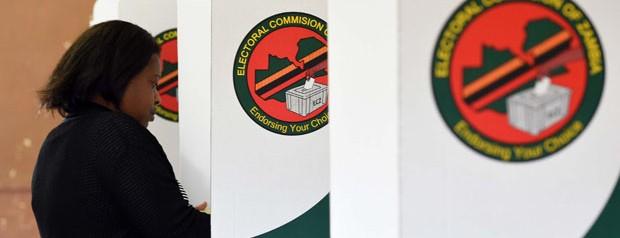African oil & gas outlook 2013 (part II): analysis by region – Rolake Akinkugbe at Ecobank

SSA is set to produce approximately 5.9 million barrels (bpd) of crude oil in 2013 dominated by Nigeria and Angola compared to the estimated 5.5 million barrels produced in 2012. This increase will largely reflect the expected return of at least 150,000 bpd in production from South Sudan, which was shut-in for most of 2012. At full capacity, the region’s largest producer, Nigeria, could produce 3 million bpd, but has faced periodic production challenges, which have continued from 2012; production fell to as low as 1.9million bpd at the end of that year, though average stood at around 2.45million bpd. Government forecasts of 2.53million bpd for 2013 would appear ambitious, and levels closer to 2012 are more likely.
In 2013, there will likely be new production from International Oil Company (IOC) ExxonMobil’s deepwater Ehran North Phase 2 field, and Italian IOC ENI’s deepwater Oberan field. It remains unclear, how much of the illegal crude oil theft also known as “˜bunkering’ scourge can be curbed in 2013.In 2012, Nigeria lost up to 400,000 bpd to this practice at certain periods. A lingering challenge is industry uncertainty fuelled by delays in passing the Petroleum Industry Bill (PIB), which could remain the dominant obstacle to a major boost in production over the 12-18 months. Finally, US demand for Nigeria crude oil looks set to fall further in 2013 to around 580,000 bpd, continuing a downward trend that intensified in 2012, due to rising domestic oil and shale gas production in North America.
Production in Angola also fell to 1.7 million bpd at the end of 2012 due to maintenance work on some oil fields. However, BP’s Block 31 ultra deepwater PVSM project discovered in 2002, and comprising four oil fields; Pluto, Saturn, Venus and Mars, is likely to reach 150,000bpd by the end of 2013. Hopes of pre-salt potential in Angola, both onshore and offshore, based on the country’s geological similarities with Brazil, which is famous for its pre-salt reservoirs, will also attract further interest in 2013.
Despite OPEC quota limits, oil production will continue to rise over the next 12 months as new projects gather pace. Angola’s total oil production capacity will probably rise to at least 1.9 million bpd in 2013, up from an estimated to 1.79 m million in 2012. In 2012 Angola’s government introduced a new FX legislation governing the oil and gas sector aimed at retaining much local value within the country as possible, by requiring IOCs to use local banks for oil and gas transactions. Although Angola is known to have one of the most progressive regimes for oil contracts, the overall government stake in Angola’s oil and gas sector is considered to be relatively high, although this has not necessarily served as a major deterrent to oil and gas development and exploration and appetite for investment in Angola’s natural resource industry will remain robust
West Africa
Ghana’s Jubilee oil field reached 110,000bpd at the end of 2012, and we expect that Jubilee production could peak in 2013 at a rate just above 120,000 bpd. Jubilee field partners are also fast-tracking plans to develop the Tweneboa, Enyenra and Ntomme (TEN) field, which would create another long-term boost to production beyond 2013. Crude oil production in Cote d’Ivoire is likely to hover around 44,000 bpd in 2013 as investment activity in the country picks up, and new discoveries are developed. New producer Niger, awarded five new oil licenses for oil exploration in the country in 2012, and Chinese state oil firm, CNPC, which already produces 20,000bpd from the Agadem field, could be joined by other investors, whom the government hopes will help boost production to 80,000 bpd by Q4 2013. Production has fallen in Chad to around 115,000bpd following an earlier peak of 220,000bpd, though an extra 50,000bpod is expected in early 2014. Although intense exploration activity continues in other West African countries such as Benin, Togo, Liberia, and Sierra Leone, which awarded 8 new oil blocks in 2012 to teams of investors, no discoveries were made in any of these countries in 2012, and any hopes of crude oil production remain a longer-term prospect.
Central Africa
In Central Africa, production is dominated by Congo-Brazzaville which produced 370,000 bpd in 2012. New investment of around US$1.9billon could speed up the development of the 70 million barrel Lianzi field. Growing optimism about presalt plays could attract new interest in Congo-Brazzaville and Gabon. With the exception of the Central African Republic (CAR) all the Economic Community of Central African States (CEMAC) member states are oil producers, who have a host of maturing and declining fields. CEMAC oil producers produced a total of 1.1million bpd between them in 2012.
A big game-changer in 2013 for the region’s producers, to offset the longer-term decline in production from maturing fields, could be pre-salt exploration which is already underway in Congo and Gabon. However, with little sign of any planned pre-salt exploration in CEMAC member, Equatorial Guinea, short-term increases in production will hinge on the Aseng oil and gas condensate field, and the Zafiro field, which has been the key source of Equatorial Guinea’s 250,000 bpd production. In the short-term at least production from Aseng will help stem off any significant decline in the country’s output.
East Africa and Southern Africa
Crude oil discoveries in Kenya by Tullow at the Ngaima-1 and Twiga-1 wells in the Northern Kenya in mid-2012, following the near-perpetual gas finds in Tanzania and Mozambique in the prior 24 months and continuing into 2012, firmly cemented the East Africa region’s status as an oil and gas exploration frontier. The passing of Uganda’s long-awaited oil law in December 2012 has boosted hopes of first oil production in 2017. To the north, South Sudan is expected to resume production early in 2013, following months of tension with Sudan over crude oil transit fees. An initial production level of 150,000 bpd is expected, and could reach previous levels of around 300,000 by Q4, depending on the success of further border demarcation talks with Sudan. In the SADC region, Namibia is a continuing hotspot for oil and gas exploration, though its pre-salt potential has come to dominate Southern Africa oil exploration.
SSA’s crude oil trading patterns have remained relatively stable over the last few years, with the main oil producers representing key sources of crude oil for the region’s refineries. However, intra-regional flows of crude oil still represent only 3% of the region’s total crude oil trade. Currently, much of the intra-regional crude oil trade flows in West Africa originate from Nigeria, the region’s largest producer. However, with Ghana now the largest producer in the ECOWAS region, at 110,000bpd (after Nigeria), it could potentially supply some of West Africa’s intra-regional exports.
Part I of this Ecobank oil and gas focus can be read here.
Rolake Akinkugbe is Head, Energy research, Ecobank Group.






